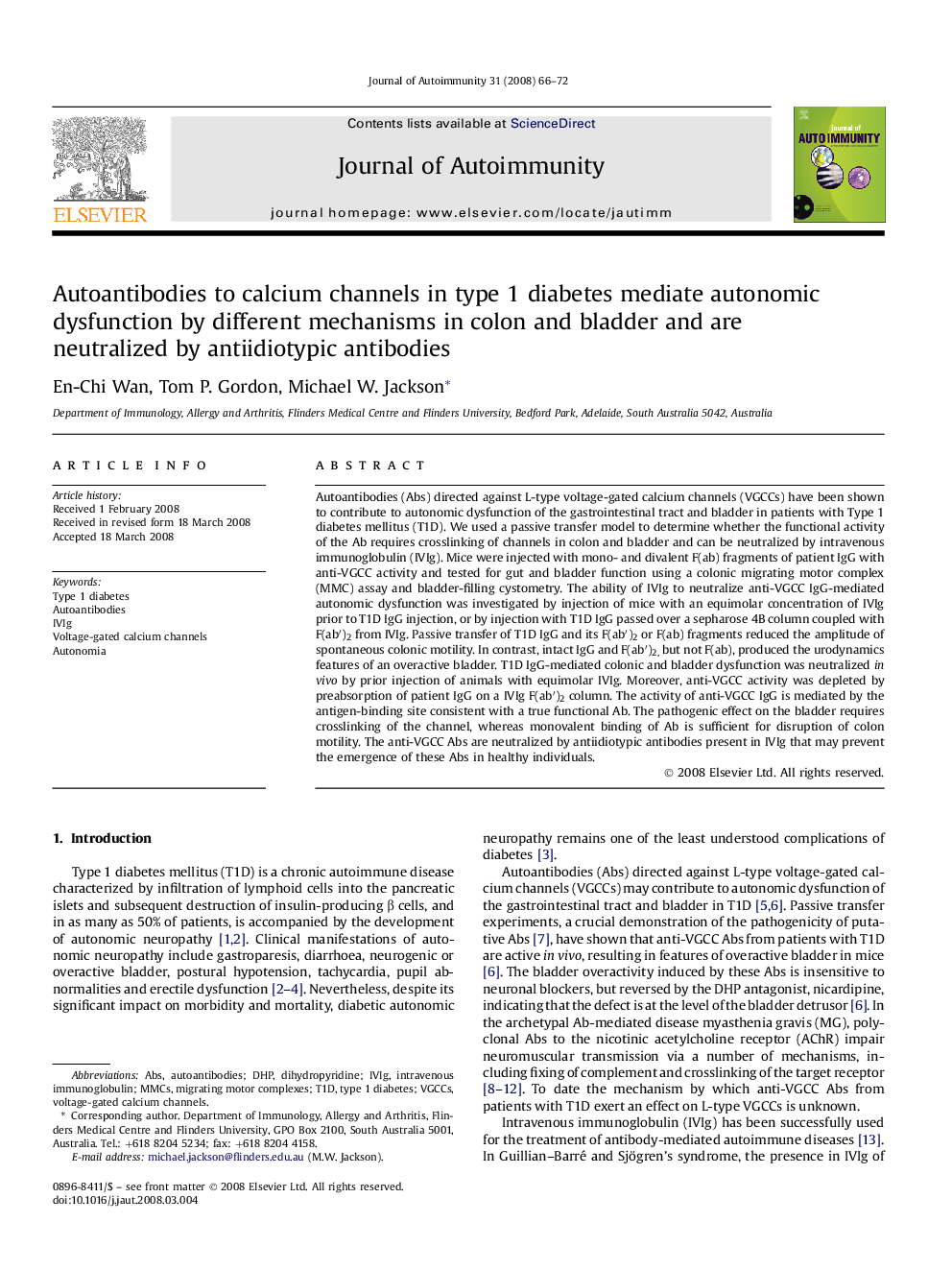| Article ID | Journal | Published Year | Pages | File Type |
|---|---|---|---|---|
| 3368229 | Journal of Autoimmunity | 2008 | 7 Pages |
Autoantibodies (Abs) directed against L-type voltage-gated calcium channels (VGCCs) have been shown to contribute to autonomic dysfunction of the gastrointestinal tract and bladder in patients with Type 1 diabetes mellitus (T1D). We used a passive transfer model to determine whether the functional activity of the Ab requires crosslinking of channels in colon and bladder and can be neutralized by intravenous immunoglobulin (IVIg). Mice were injected with mono- and divalent F(ab) fragments of patient IgG with anti-VGCC activity and tested for gut and bladder function using a colonic migrating motor complex (MMC) assay and bladder-filling cystometry. The ability of IVIg to neutralize anti-VGCC IgG-mediated autonomic dysfunction was investigated by injection of mice with an equimolar concentration of IVIg prior to T1D IgG injection, or by injection with T1D IgG passed over a sepharose 4B column coupled with F(ab′)2 from IVIg. Passive transfer of T1D IgG and its F(ab′)2 or F(ab) fragments reduced the amplitude of spontaneous colonic motility. In contrast, intact IgG and F(ab′)2, but not F(ab), produced the urodynamics features of an overactive bladder. T1D IgG-mediated colonic and bladder dysfunction was neutralized in vivo by prior injection of animals with equimolar IVIg. Moreover, anti-VGCC activity was depleted by preabsorption of patient IgG on a IVIg F(ab′)2 column. The activity of anti-VGCC IgG is mediated by the antigen-binding site consistent with a true functional Ab. The pathogenic effect on the bladder requires crosslinking of the channel, whereas monovalent binding of Ab is sufficient for disruption of colon motility. The anti-VGCC Abs are neutralized by antiidiotypic antibodies present in IVIg that may prevent the emergence of these Abs in healthy individuals.
